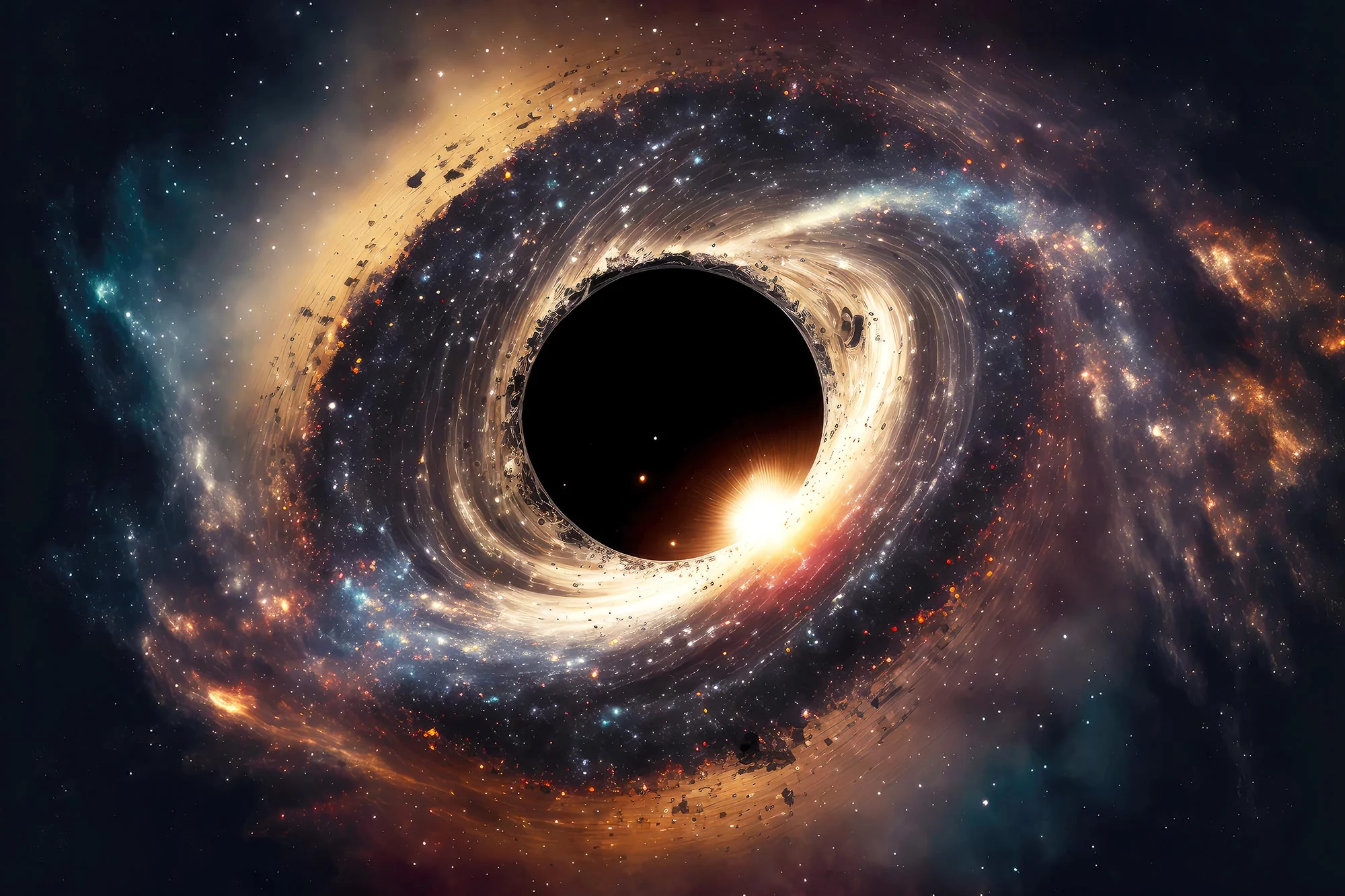
Black holes have long fascinated scientists and the public alike, serving as enigmatic cosmic entities that challenge our understanding of physics. As research advances, several surprising discoveries about black holes have emerged, deepening our comprehension of these mysterious objects and their role in the universe. Here are some of the most intriguing findings.
1. Black Holes Can Grow to Enormous Sizes
While black holes were initially thought to be relatively small remnants of massive stars, scientists have discovered supermassive black holes at the centers of galaxies that can be billions of times more massive than our Sun. The largest known black hole, TON 618, is estimated to be about 66 billion solar masses. This discovery challenges our understanding of how black holes form and grow, suggesting they can accumulate mass through various mechanisms, including merging with other black holes and consuming surrounding matter.
2. Black Holes Emit Hawking Radiation
Proposed by physicist Stephen Hawking in the 1970s, Hawking radiation suggests that black holes are not entirely black but can emit radiation due to quantum effects near their event horizons. This phenomenon indicates that black holes can gradually lose mass and energy over time, potentially leading to their eventual evaporation. This discovery has profound implications for our understanding of thermodynamics and the fate of black holes in the universe.
3. Black Holes Can “Sing”
Black holes can emit gravitational waves—ripples in spacetime caused by the acceleration of massive objects. When two black holes collide and merge, they produce gravitational waves that can be detected by observatories like LIGO and Virgo. The frequencies of these waves can reveal information about the properties of the merging black holes, including their masses and spins. This discovery not only opened a new window into observing the universe but also confirmed aspects of Einstein’s theory of general relativity.
4. Black Holes Influence Galaxy Formation
Recent studies have shown that supermassive black holes at the centers of galaxies play a crucial role in galaxy formation and evolution. Their immense gravitational pull can regulate star formation and influence the distribution of matter within galaxies. This interaction suggests a complex relationship between black holes and their host galaxies, leading scientists to reconsider the processes that shape the cosmos.
5. There Are Primordial Black Holes
In addition to the black holes formed from dying stars, scientists theorize the existence of primordial black holes. These hypothetical black holes could have formed in the early universe, shortly after the Big Bang, due to density fluctuations. If they exist, they could range in size from tiny to supermassive and may provide insights into dark matter, as they could potentially constitute a portion of it. The search for primordial black holes remains an active area of research.
6. Time Dilation Near Black Holes
The intense gravitational field of a black hole leads to time dilation, a phenomenon predicted by Einstein’s theory of relativity. As an object approaches the event horizon of a black hole, time appears to slow down relative to an outside observer. This surprising effect means that if someone were to fall into a black hole and return (hypothetically), they could experience a drastically different passage of time compared to someone remaining outside. This concept raises intriguing questions about the nature of time itself.
7. Black Holes Can Be Detected Through X-Ray Emissions
While black holes cannot be observed directly, they can be detected indirectly through their interactions with surrounding matter. When matter falls into a black hole, it heats up and emits X-rays due to the immense gravitational forces at play. Observatories like the Chandra X-ray Observatory have captured these emissions, allowing scientists to identify and study black holes, including stellar black holes and supermassive black holes at the centers of galaxies.
8. The Information Paradox
The information paradox, a puzzle arising from Hawking’s predictions, suggests that information about matter that falls into a black hole may be lost forever, conflicting with the principles of quantum mechanics that state information cannot be destroyed. This paradox has spurred extensive research and debate, leading to various theories about how information may be preserved, including ideas involving holography and the concept of “black hole firewalls.”
Conclusion
Black holes continue to be a source of wonder and mystery, revealing surprising discoveries that challenge our understanding of the universe. As technology advances and new observational techniques are developed, our knowledge of black holes will likely expand, offering deeper insights into these fascinating cosmic phenomena. Each discovery not only enhances our understanding of black holes but also invites us to ponder the fundamental laws of nature and the universe’s ultimate fate.






